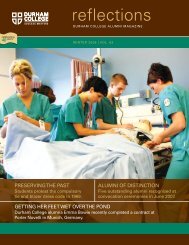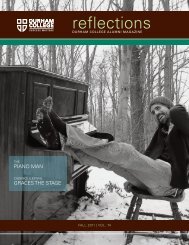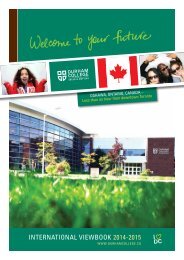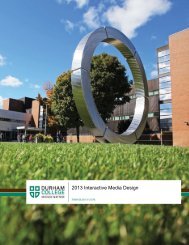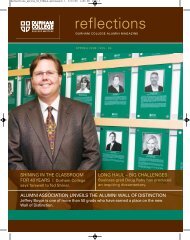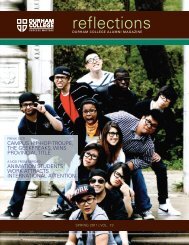Download - Durham College
Download - Durham College
Download - Durham College
Create successful ePaper yourself
Turn your PDF publications into a flip-book with our unique Google optimized e-Paper software.
Academic Integrity<br />
Academic integrity refers to the pursuit of scholarly activity in an open, honest and responsible manner.<br />
Acts that undermine academic integrity, such as plagiarism, cheating and misrepresentation of work,<br />
contradict <strong>Durham</strong> <strong>College</strong>’s core values.<br />
To ensure the highest academic standards, students are accountable for the work they produce, and<br />
student work must be the product of his or her efforts. <strong>Durham</strong> <strong>College</strong> has purchased a license with<br />
Turnitin.com, an online service to detect unoriginal work and citation errors. The Academic Integrity<br />
Policy and Procedure documents (http://www.durhamcollege.ca/academicpolicies) provide a<br />
comprehensive explanation of <strong>Durham</strong> <strong>College</strong>’s expectations regarding academic integrity.<br />
Evaluation and Promotion<br />
Requirements For Promotion<br />
Academic courses are evaluated using a variety of methods such as tests, essays, labs, written or verbal<br />
assignments, in‐process activities, group work and/or final examinations. The evaluation criteria for<br />
each course are noted in its course outline. Students are advised to familiarize themselves with these<br />
criteria early in the semester. Please refer to the Grading and Promotion Policy and Procedures<br />
documents (http://www.durhamcollege.ca/academicpolicies) for a complete overview of grading and<br />
promotion practices.<br />
Academic Probation<br />
Students who are not progressing satisfactorily according to criteria published in their respective<br />
program guides may be placed on academic probation, at the discretion of the school Dean or<br />
designate. Such students may be allowed to continue their studies on a Letter of Permission (an<br />
academic student contract) which will specify conditions which must be met to continue in their<br />
programs. Students who do not meet the conditions of their academic probation may be required to<br />
withdraw from full‐time studies.<br />
Page 22 of 36


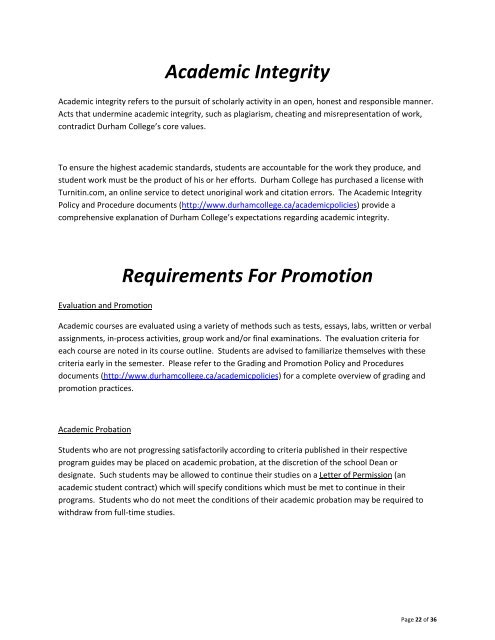
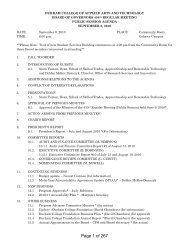

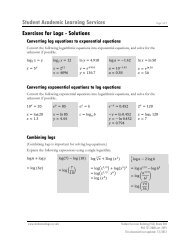
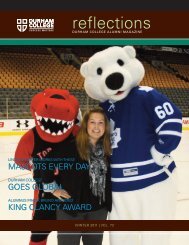
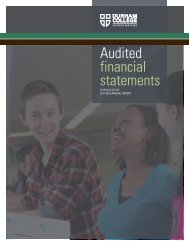


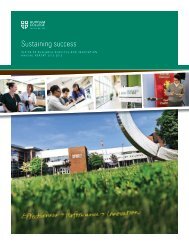
![Annual Report 2007 – 2008 [PDF - 942 KB] - Durham College](https://img.yumpu.com/46399542/1/190x245/annual-report-2007-2008-pdf-942-kb-durham-college.jpg?quality=85)
